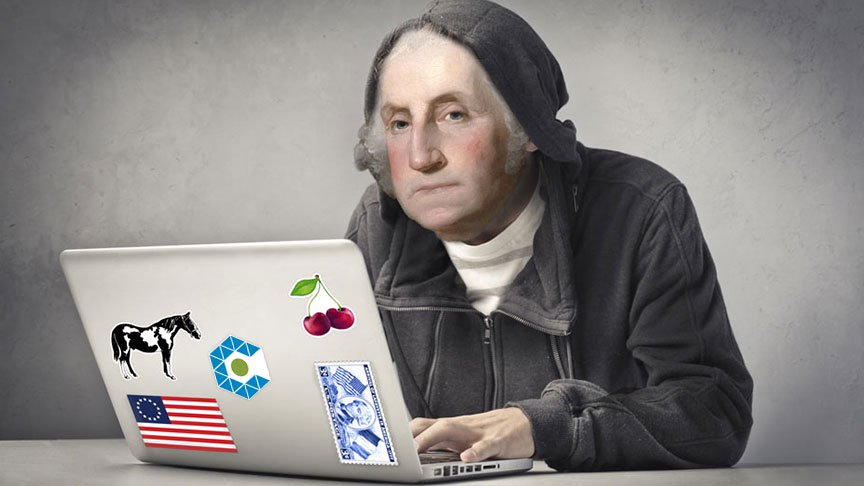The Founding Generation on Cybersecurity
Picking the Founders’ Brains
The ghosts of the Founding Generation are especially active around Independence Day. And these spirits still have much to share, teach, and to pass on. The Founders had great foresight, so it’s a helpful exercise to look back at their thoughts and writings in order to solve today’s problems, even modern issues like cybersecurity.
Washington’s Interest in Cryptography
Before we hypothesize how the Founders would respond to cyber incidents, it’s important to establish that the founding generation, especially George Washington, had insight into security tactics. Washington, like other military leaders before him, had a practical use for coded messages and secret communication, known today as cryptography. Washington and his troops used an elaborate system to secure intelligence and information sharing. Washington, and his intelligence agents, known as the Culper Spy Ring, used the Culper Code Book, which cryptographers will recognize as an early version of a substitution cipher. The code book used numerical representations of common words. For example, 659 represented the word “Victory” while 255 meant “Horse.”
The Founders on Cyber Attacks
But Washington knew that even the best ciphers and codes could be cracked. Therefore, the Founders are qualified to speak on the ramifications of a cyber breach.
The founding generations would recognize modern day cyber attacks as a direct assault upon the three unalienable rights that the Declaration of Independence enumerates: “Life, Liberty and the pursuit of Happiness.”
Think over the most publicized attacks in recent months and you can see how each of these liberties were assaulted. Life has been jeopardized as hospitals were forced to cancel surgeries and limit care due to ransomware and handcuffed electronic data systems. Liberty was undermined as the confidence in the integrity and fairness of elections was questioned. And, finally, happiness was undermined by the stealing of personal private information by cyber criminals. Indeed the number and type of assaults on our pursuit of happiness would rival the enumerated list Jefferson lodged against King George III in the Declaration of Independence.
The Founders on Cybersecurity Solutions
The Founders felt that America was a nation uniquely blessed by nature. Among those blessings were two oceans which protected it from foreign invasion. Indeed, for a couple of centuries it was. But, today, the idea that physical separation or geographic barriers offer protection against cyber attack is dangerously naïve.
So is the only path to safety to close down commerce and operations that use Internet-connected computers? Shall we retire our credit cards and pay in whisky barrels as the people of the founding generation did? The founding generations would object. Their ideas about political liberty were intertwined with their ideas about commercial liberty. They admired entrepreneurship and personal industry. Washington, in a 1784 letter, expressed his peers’ common sentiment about people’s sense of industry: “A people …who are possessed of the spirit of commerce, who see, and who will pursue their advantages, may achieve almost anything.”
The Founders would also certainly comment that while cybersecurity is a global issue, America can take lead on solving it. Benjamin Franklin’s 1777 letter to a friend explaining the stakes of the American Revolution then underway remains relevant today: “It is a common observation here that our cause is the cause of all mankind, and that we are fighting for their liberty in defending our own.”
As you celebrate Independence Day, please think about your cyber training needs and how earning your CISSP can help you achieve Life, Liberty, and your pursuit of Happiness (perhaps in the form of a higher paying job). Wishing you all a happy Fourth of July weekend!


